Special Report
Countries That Are the Worst at Protecting Endangered Species
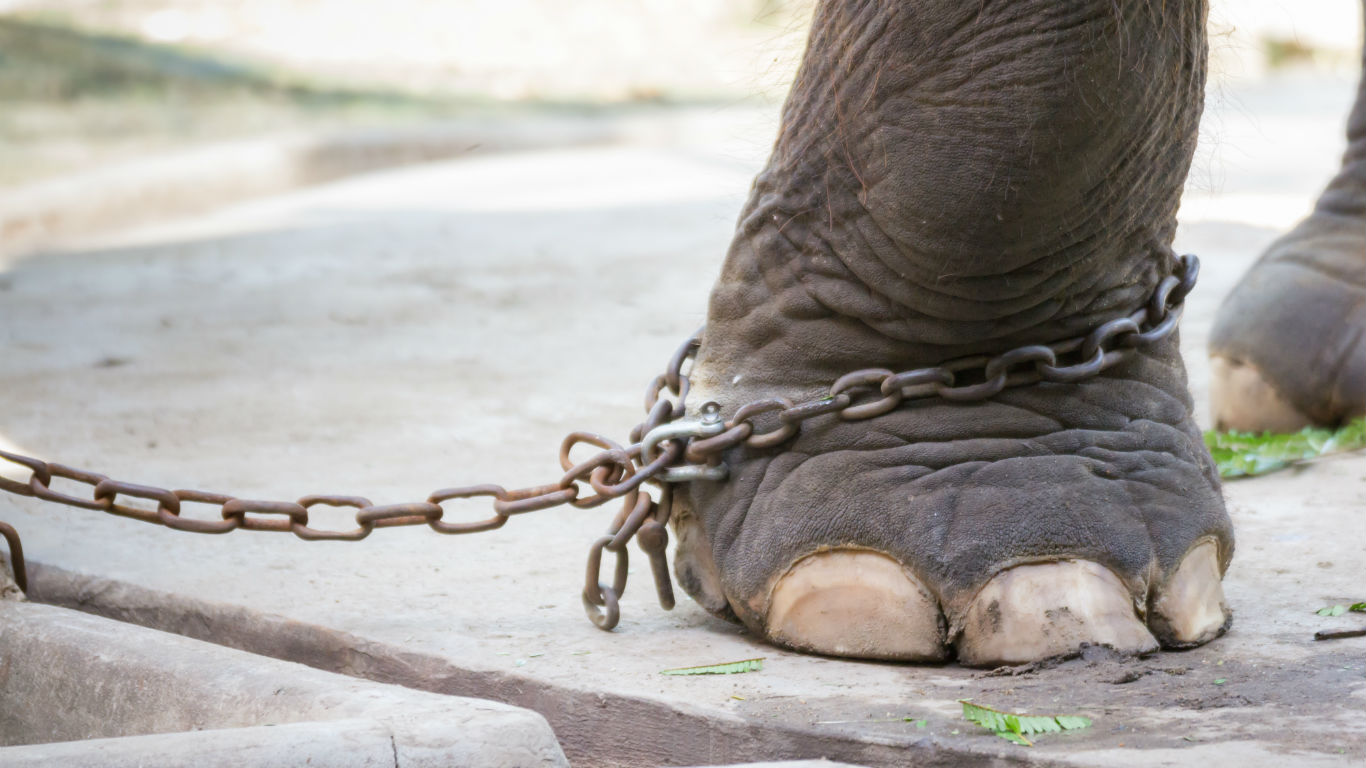
Published:
Last Updated:

There is a growing awareness about animal sentience, or the ability of our fellow creatures to perceive, feel emotion, and develop personalities. Because of this, people are more sympathetic to the plight of animals and have taken steps to ensure their welfare. These are the animals humans are driving to extinction.
Some countries are more enlightened about the well-being of animals. Many of these nations are developed countries with the funding and awareness to address the needs of animals. These are the countries doing the most to protect endangered animals.
Not all nations, however, take such steps. 24/7 Tempo compiled a list of 18 countries that are the worst at protecting animals — domesticated, wild, and endangered. We compiled our list based on data supplied by the Animal Protection Index, which classified 50 countries based on their commitments to protecting animals and improving their welfare in policy and legislation.
Many of the nations on the list of countries lacking in protection of animals are developing nations that contain habitats of many of the world’s at-risk animals, such as lions, tigers, and elephants. Most of these nations have legislation or policies protecting animal welfare, but they lack the resources to enforce their protocols.
“Countries with low scores sometimes lack basic anti-cruelty animal welfare legislation,” said Laure Boissat, external affairs project manager for London-based Animal Protection Index, in an email. “Other challenges that are common to countries with low scores include poor enforcement mechanisms or a lack of financial resources dedicated to improving and enforcing animal welfare legislation.” For more on country-level income levels, here are the 25 poorest countries in the world.
Click here to see the countries that are the worst at protecting endangered species
Click here to read our detailed findings and methodology
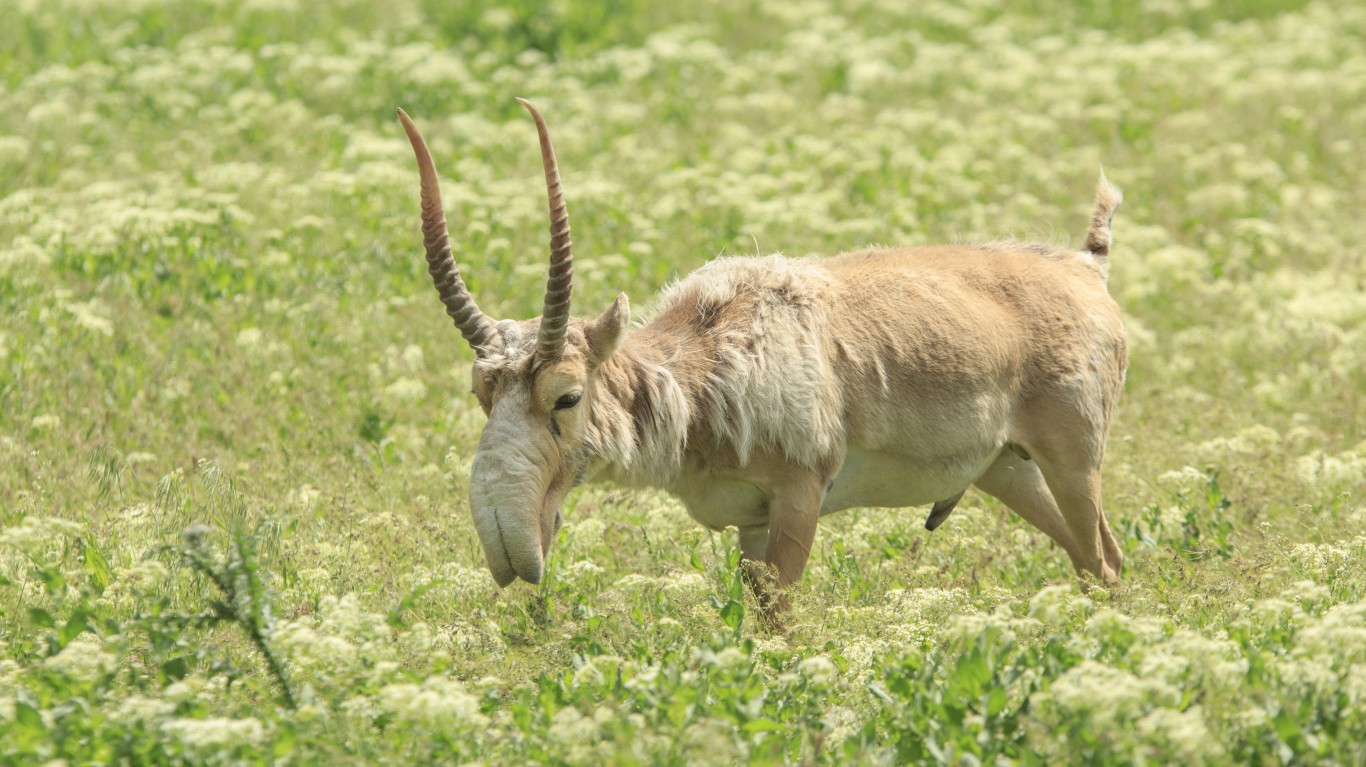
18. China
> Animal Protection Index Grade: E
China manages no better than a C grade in the 15 areas assessed on the Animal Protection Index. The country performs best in the areas of protecting animals in farming, animals used in scientific research, and animals in captivity. Legislation in China that refers to the humane treatment of animals and ensuring that animals don’t suffer acknowledges sentience among animals. Laure Boissat, external affairs project manager for the Animal Protection Index, said animal cruelty in China is not defined. Earlier this year, China announced it was taking steps to end the practice of requiring companies to test cosmetic products on animals.
Among the critically endangered animals in China is the saiga antelope.
[in-text-ad]
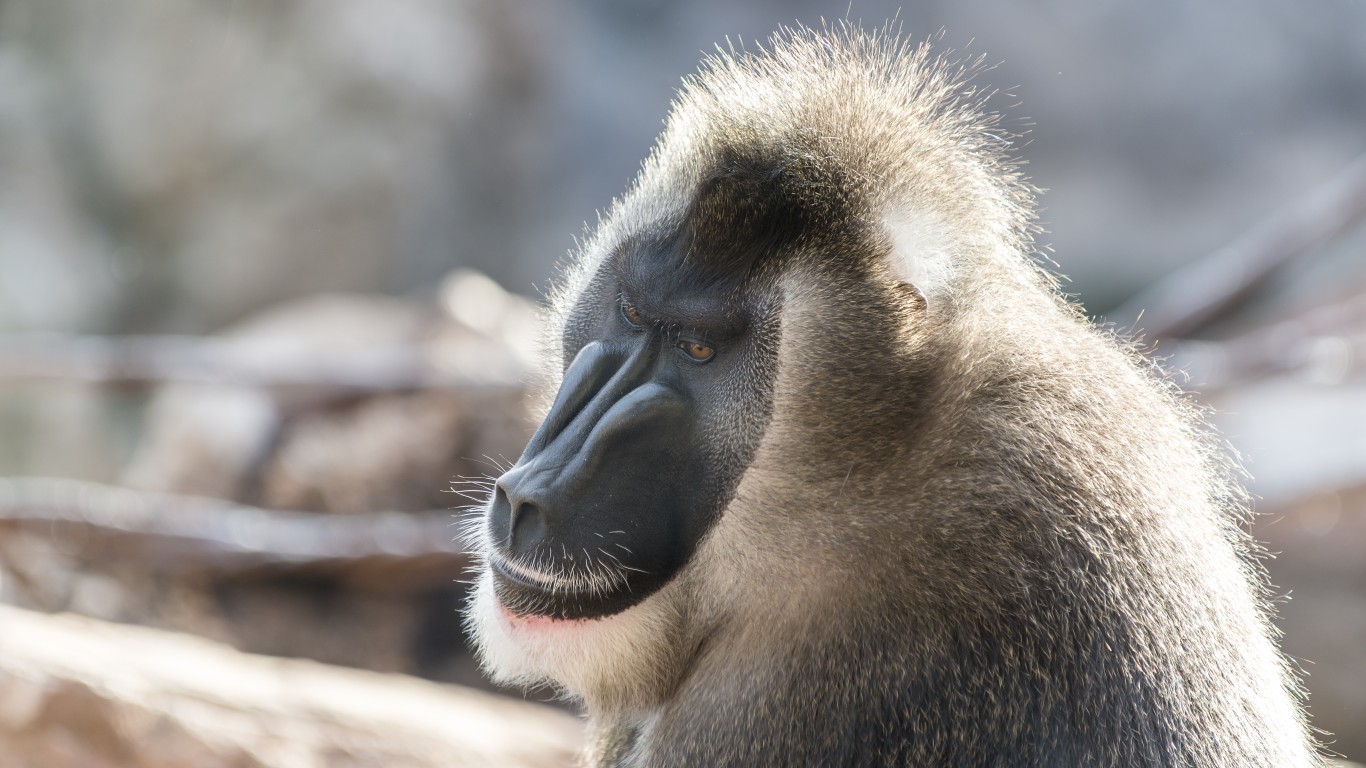
17. Nigeria
> Animal Protection Index Grade: E
The African nation earned B grades for protecting animals used for draft (working animals) and recreation, as well as for laws against causing animal suffering. Although Nigeria recognizes some evidence of animal sentience, the nation has not crafted a formal acknowledgment of animal sentience. Nigeria has expressed no support for the Universal Declaration on Animal Welfare, nor has the government developed a policy for analyzing animal welfare.
Nigeria, the most populous nation in Africa, joined the IUCN in 2012. It is home to many endangered animal species, including gorillas, leopards, chimpanzees, elephants, and drill monkeys.
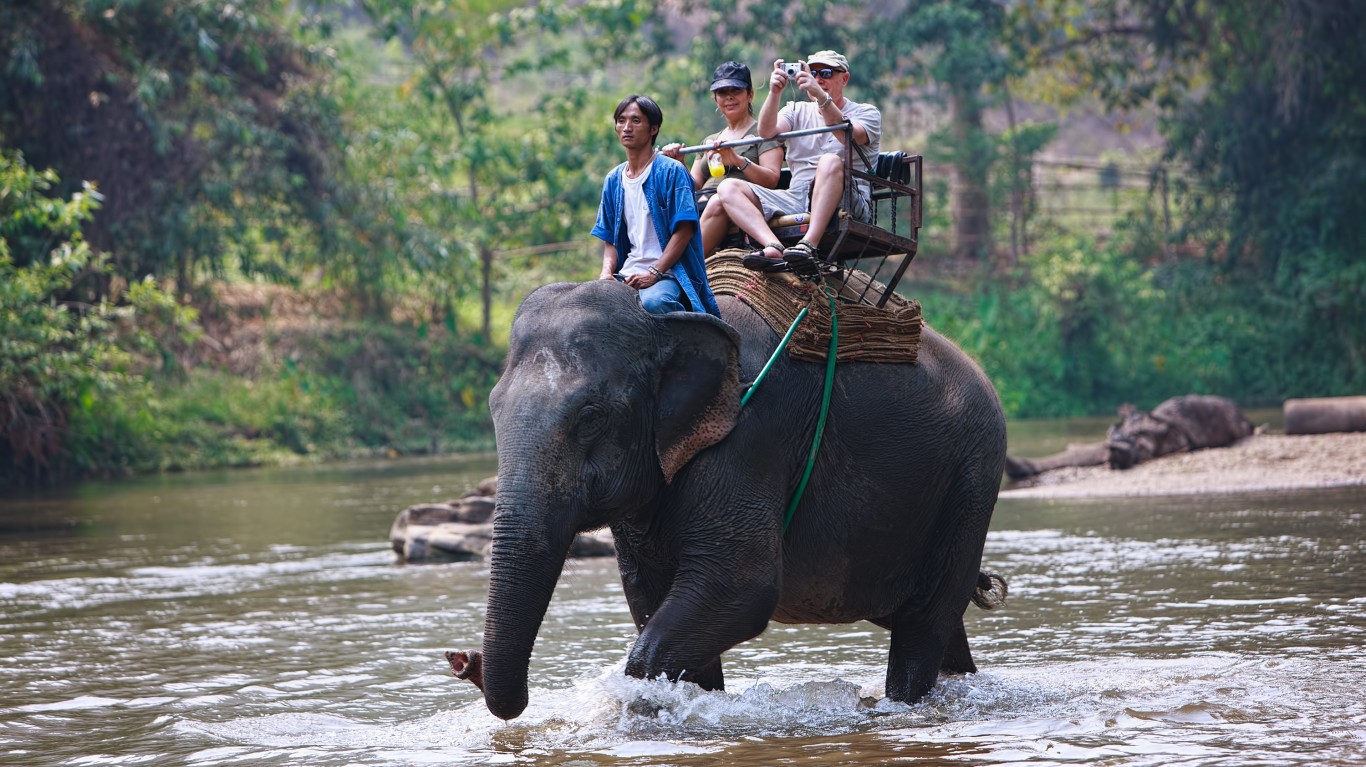
16. Thailand
> Animal Protection Index Grade: E
The Asian nation posted C grades in just three areas: laws against causing animal suffering, protecting animals used in farming, and the welfare of wild animals. Thailand’s Parliament passed an animal anti-cruelty act, but according to the API the legislation does not include requirements for reporting on animal welfare.
Thailand has been criticized for its part in the animal tourism trade in which animals are shackled for hours at a time before they are displayed for the enjoyment of travelers. According to a National Geographic story earlier this year, about 3,800 elephants are held captive in Thailand.
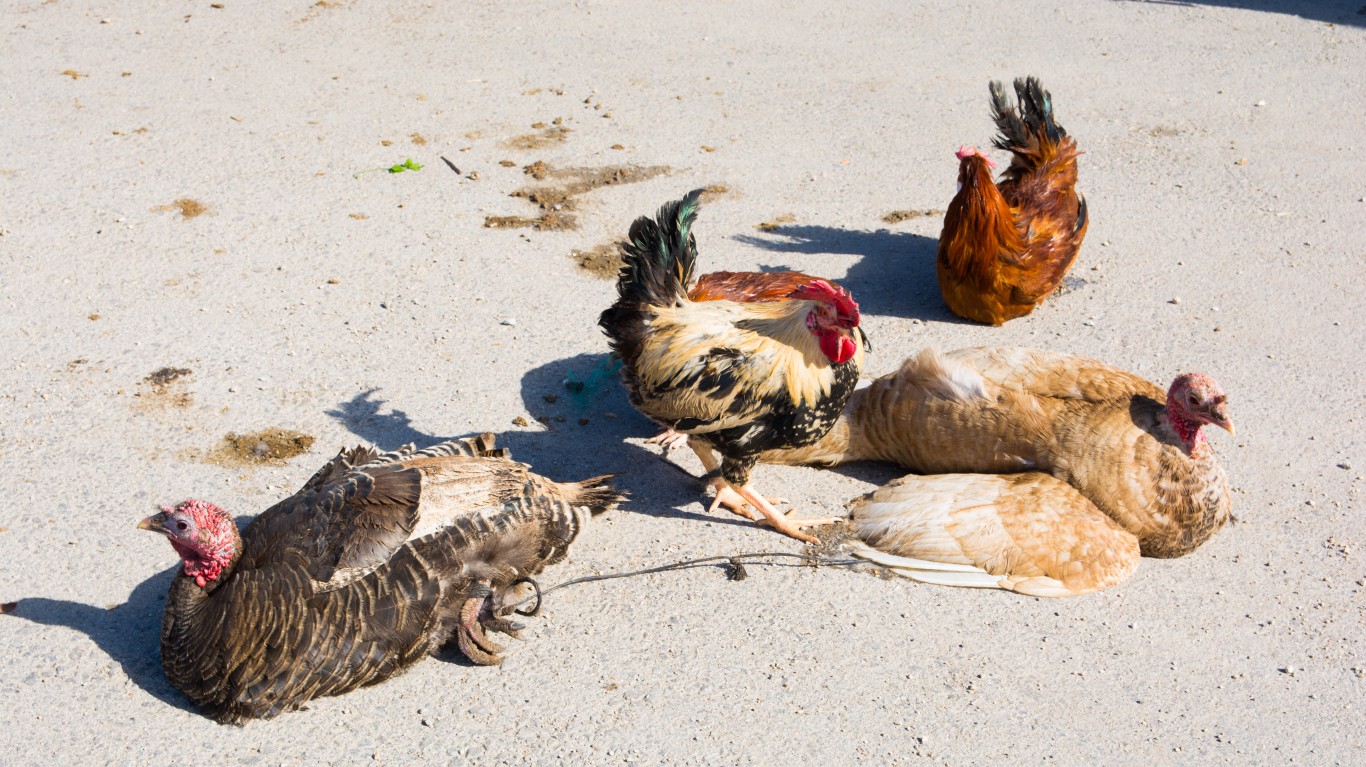
15. Turkey
> Animal Protection Index Grade: E
Turkey earned a B grade for its laws against causing animal suffering. The nation has laws forbidding conduct such as intentionally mistreating of animals, neglecting them, and inflicting physical and psychological pain. Elements of Turkish laws recognize some levels of animal sentience. Turkey, however, has not pledged its support for the Universal Declaration on Animal Welfare. It is also lax in protecting animals in captivity and animals used for farming as well as animals used for draft and recreation.
Turkey is located on two of the world’s significant bird migration routes, thus making it an important feeding and breeding region for birds. The Cappadocian gudgeon is a freshwater fish species found in Turkey that IUCN lists as critically endangered.
[in-text-ad-2]
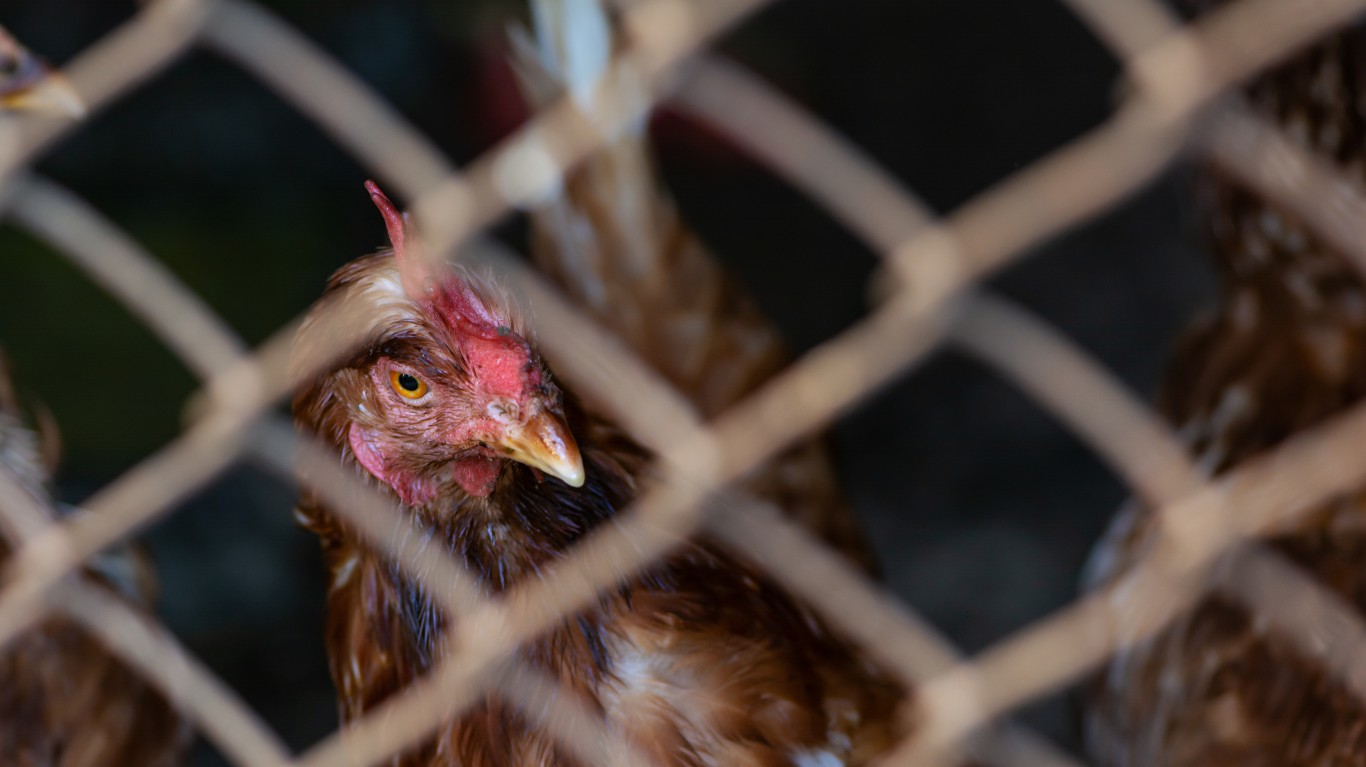
14. Ukraine
> Animal Protection Index Grade: E
Ukraine’s highest grade among the 15 areas assessed by API is a C in the area of consultation with stakeholders and protecting animals in captivity. The nation also announced earlier this year that it is planning to end animal testing for cosmetics. Otherwise, the nation has taken few significant steps to protect animals. The government has not pledged in principle support for the Universal Declaration on Animal Welfare. Protection of animals is relegated to local supervision.
The IUCN considers the Ukrainian steppe bush cricket vulnerable.
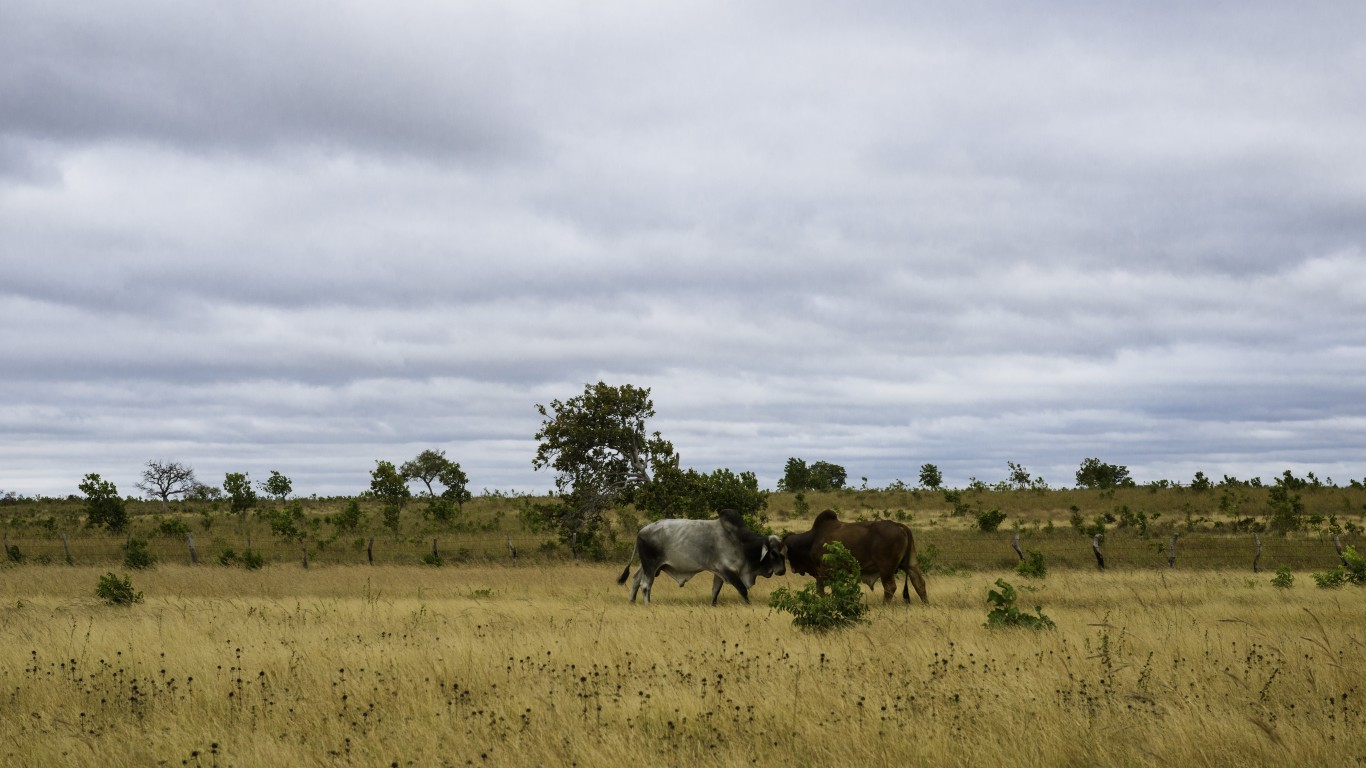
13. Venezuela
> Animal Protection Index Grade: E
The South American country that has been in political turmoil got C grades for its laws against causing animal suffering as well as for its laws protecting wild and companion animals. Laws protecting animals used in farming and for scientific research are only partly enforced. Venezuela does not acknowledge animal sentience. There is no government support for the Universal Declaration on Animal Welfare, which acknowledges the principles of animal welfare.
Amphibians such as the aprada stefania treefrog and the Bolivar bush toad and mammals such as the brown spider monkey are considered endangered animals.
[in-text-ad]
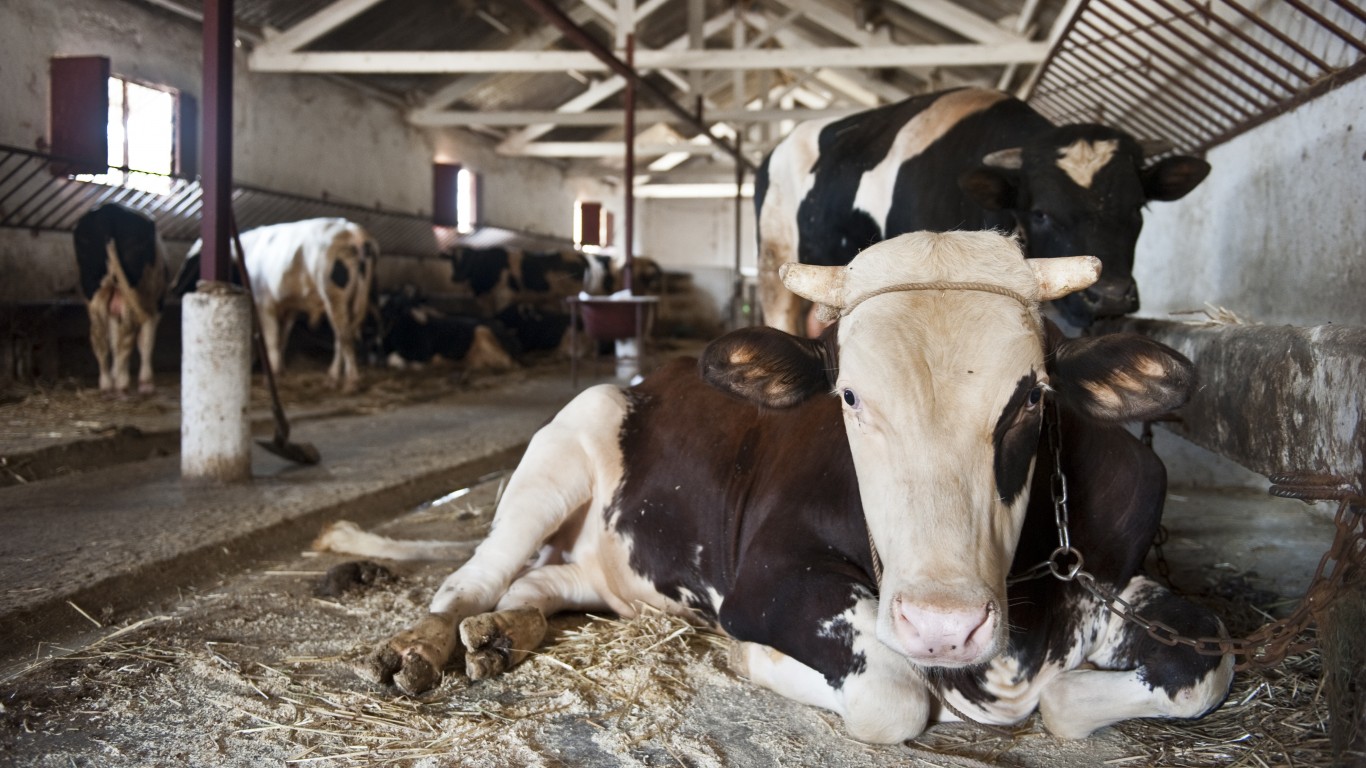
12. Algeria
> Animal Protection Index Grade: F
The North African nation scores no higher than D in its animal protection laws. Algeria only scores a D for its laws against causing animal suffering, protecting animals used in farming, and for engagement with the World Organisation for Animal Health. Algeria does not formally recognize animal sentience, has not pledged to support the Universal Declaration on Animal Welfare, and the government has no stated intention of advancing animal welfare.
The small bird known as the Algerian nuthatch is an endangered creature in Algeria.
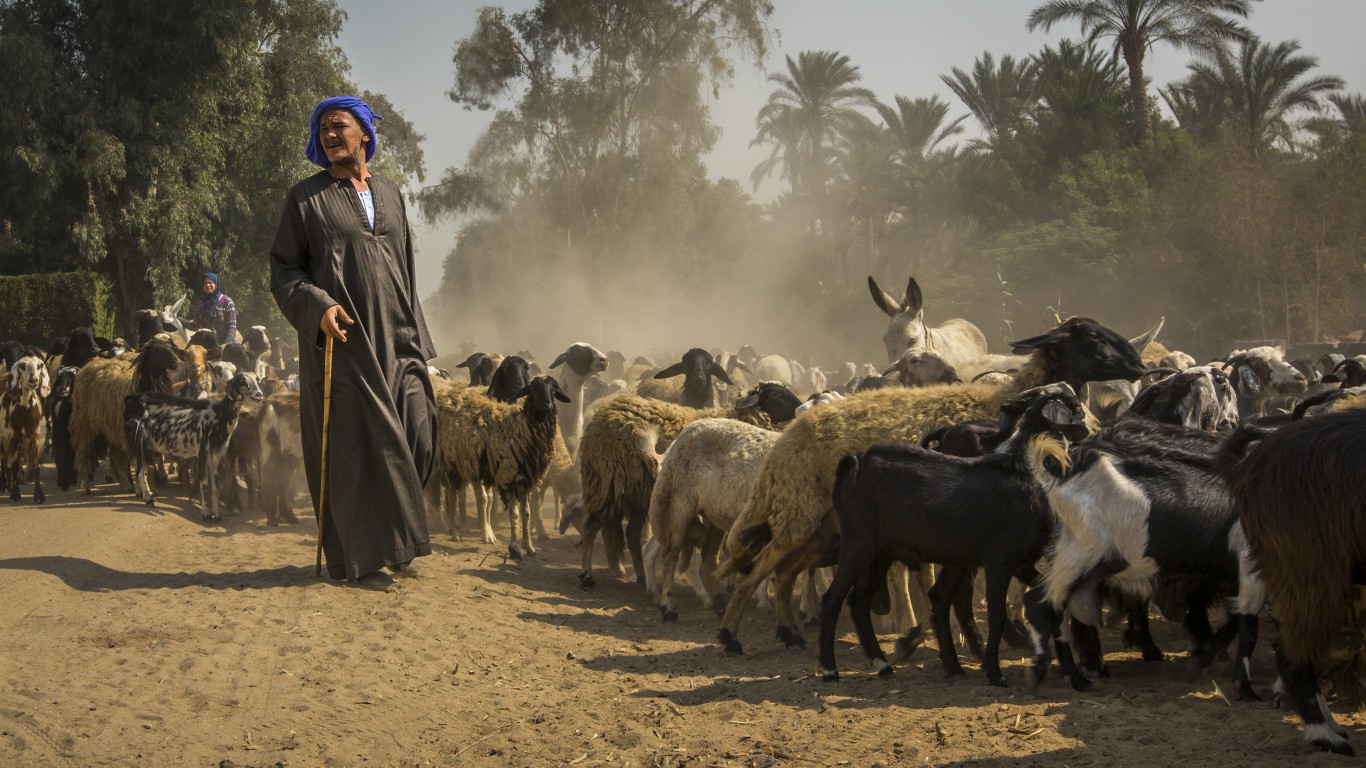
11. Egypt
> Animal Protection Index Grade: F
Egypt’s only C grade is for consulting with stakeholders in collaboration with non-government entities in supervising wildlife. Elsewhere, Egypt does no better than D grades in laws against causing animal suffering, protecting animals used in farming and scientific research, and the welfare of wild animals in other categories. There is no formal recognition of animal sentience, no policy of protecting animals in captivity, and no government support for the Universal Declaration on Animal Welfare.
Among the at-risk animals in Egypt are the lesser horseshoe bat and the Dorcas gazelle.
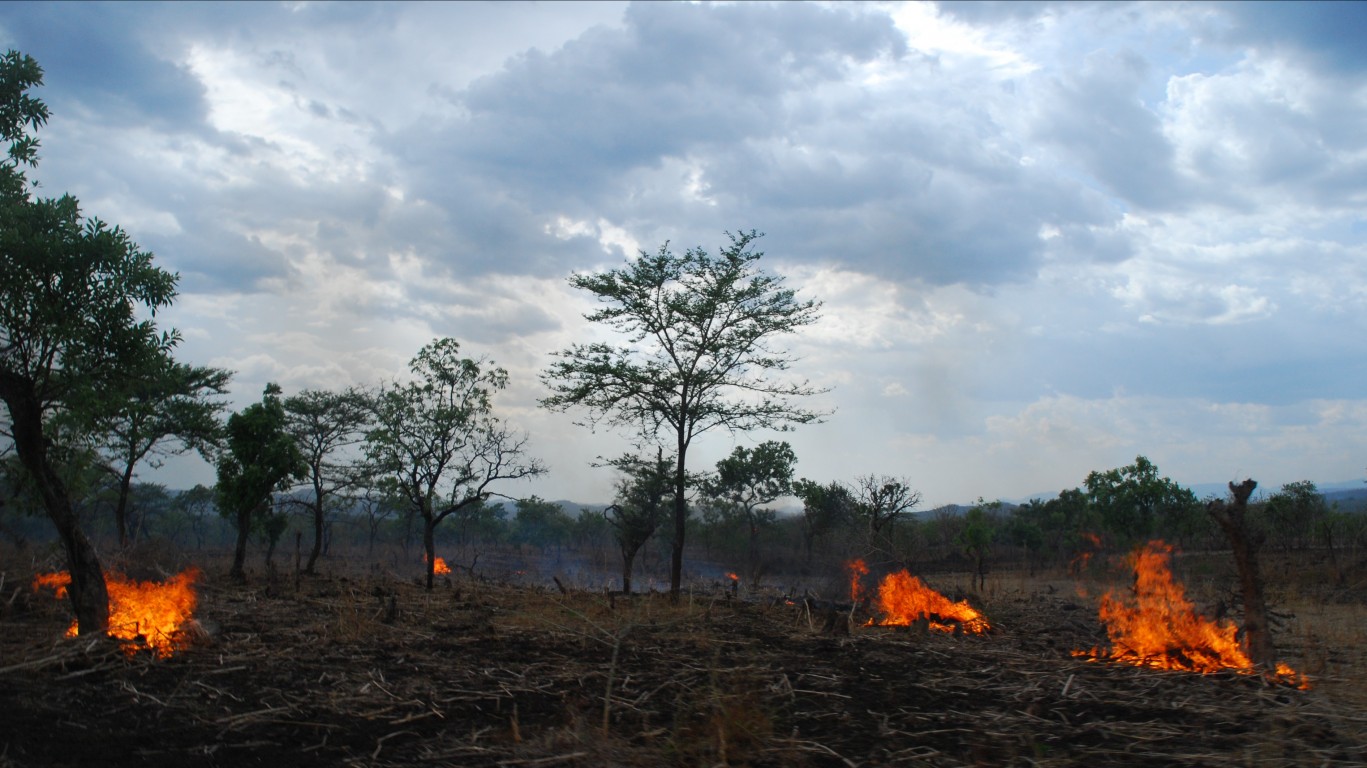
10. Ethiopia
> Animal Protection Index Grade: F
It is an offense in Ethiopia to commit cruel acts toward animals or to mistreat them. It was reported that Ethiopia in 2012 was weighing legislation to protect animals and support humane care, but there is no indication that progress has been made. The country has not crafted policy in which animal sentience is acknowledged or developed legislation shielding animals used in scientific research, nor has it pledged its support for the Universal Declaration on Animal Welfare. There is no evidence the government is gathering and analyzing information about animal well-being.
Habitat destruction has been an unfortunate consequence of the prolonged war in Ethiopia, as well as drought. Among the animals threatened in Ethiopia are Ethiopian wolf, the Ethiopian bushcrow, and the Bale Mountains treefrog.
[in-text-ad-2]
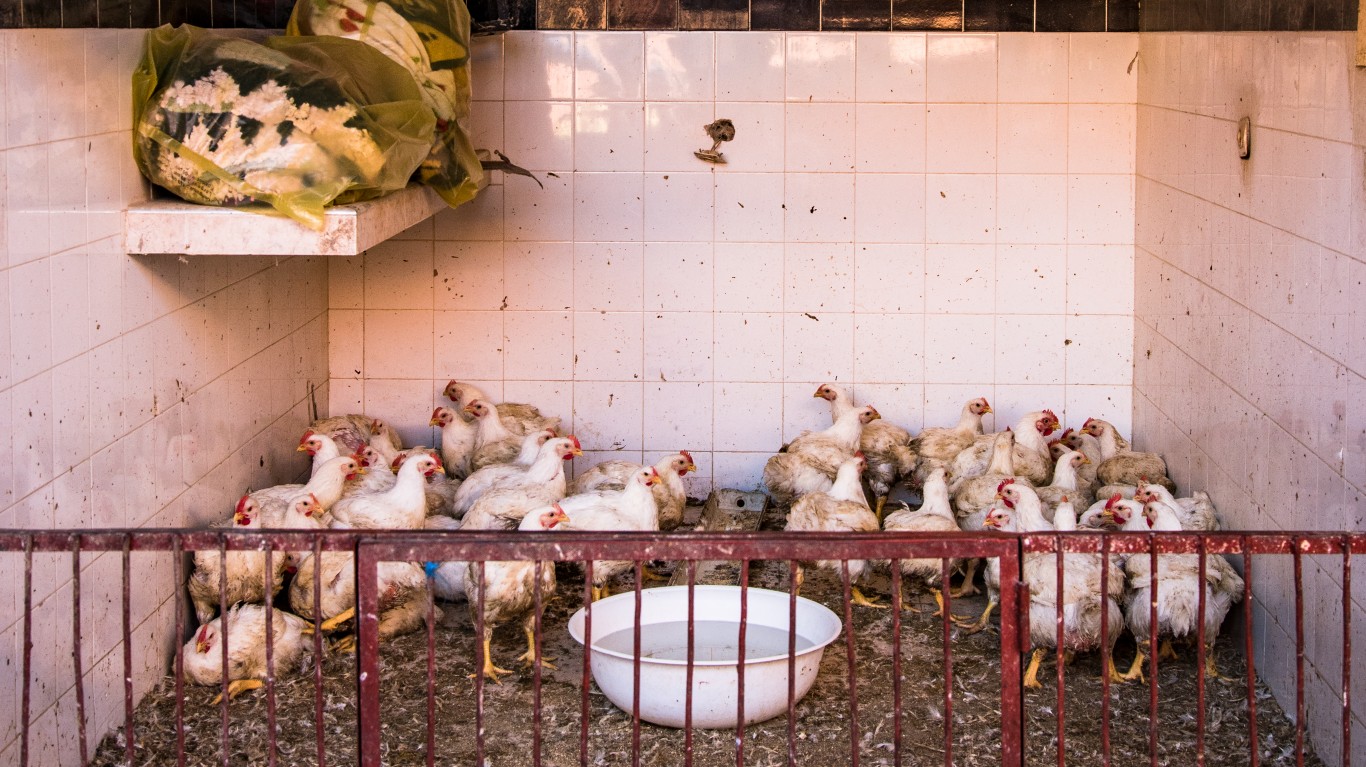
9. Morocco
> Animal Protection Index Grade: F
In the northern African nation, it is forbidden to unnecessarily kill or maim pets on land owned by that animal’s owner. Current legislation in Morocco does not support welfare for animals used in farming, nor does the country have laws that apply to animals used for recreation purposes. Morocco has no guidelines governing the welfare of animals used in scientific research. The country does not formally recognize animal sentience, nor has it officially vowed to support for the Universal Declaration on Animal Welfare.
The Mediterranean monk seal and the occidental gerbil are critically endangered animals based on data from IUCN.
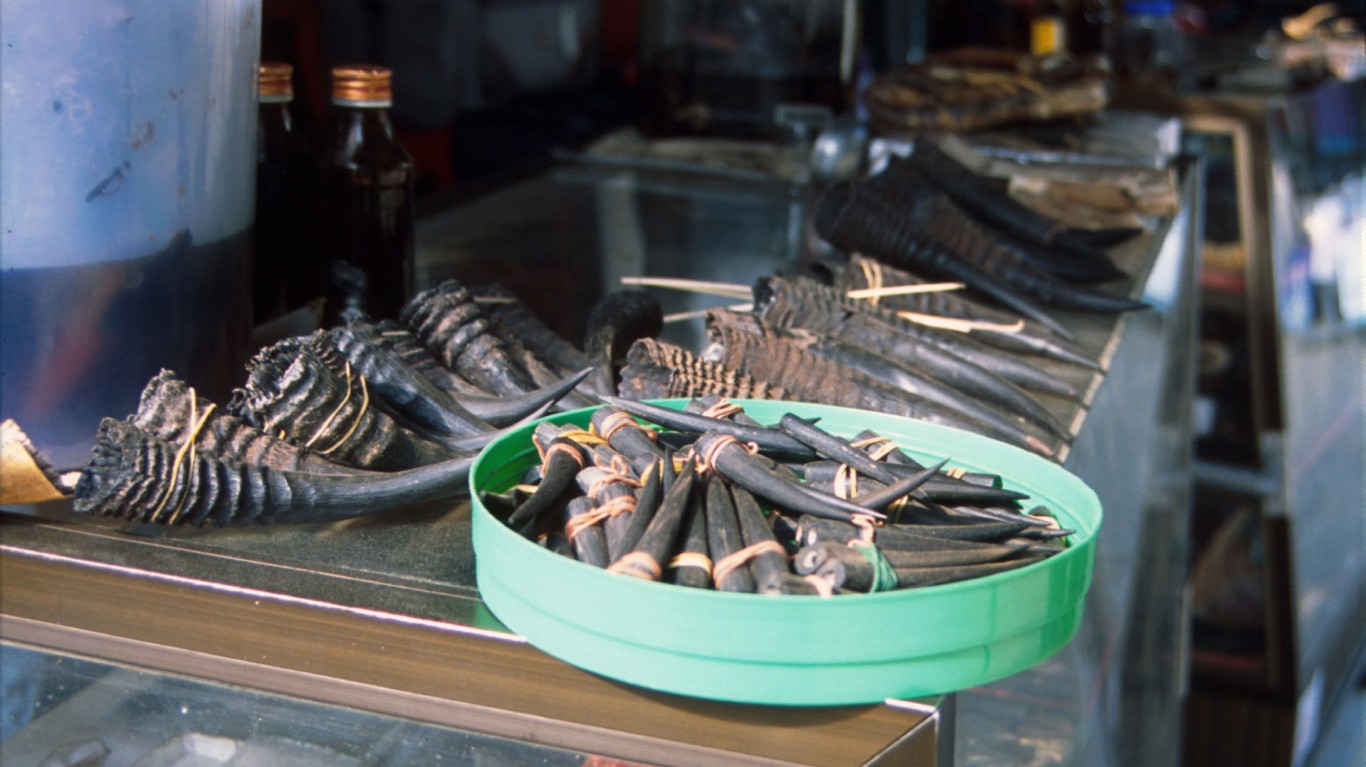
8. Myanmar
> Animal Protection Index Grade: F
Myanmar received a B grade for laws against causing animal suffering. It is an offense to force animals to work in a cruel manner, as well as mistreat them or deny them food and water.
The Asian nation has been under scrutiny for the illegal trafficking and sale of endangered animal products that goes on in the country. Myanmar is a party to the Convention on International Trade in Endangered Species (CITES) that protects more than 35,000 animals and plants worldwide, but the regulations are not enforced consistently.
[in-text-ad]
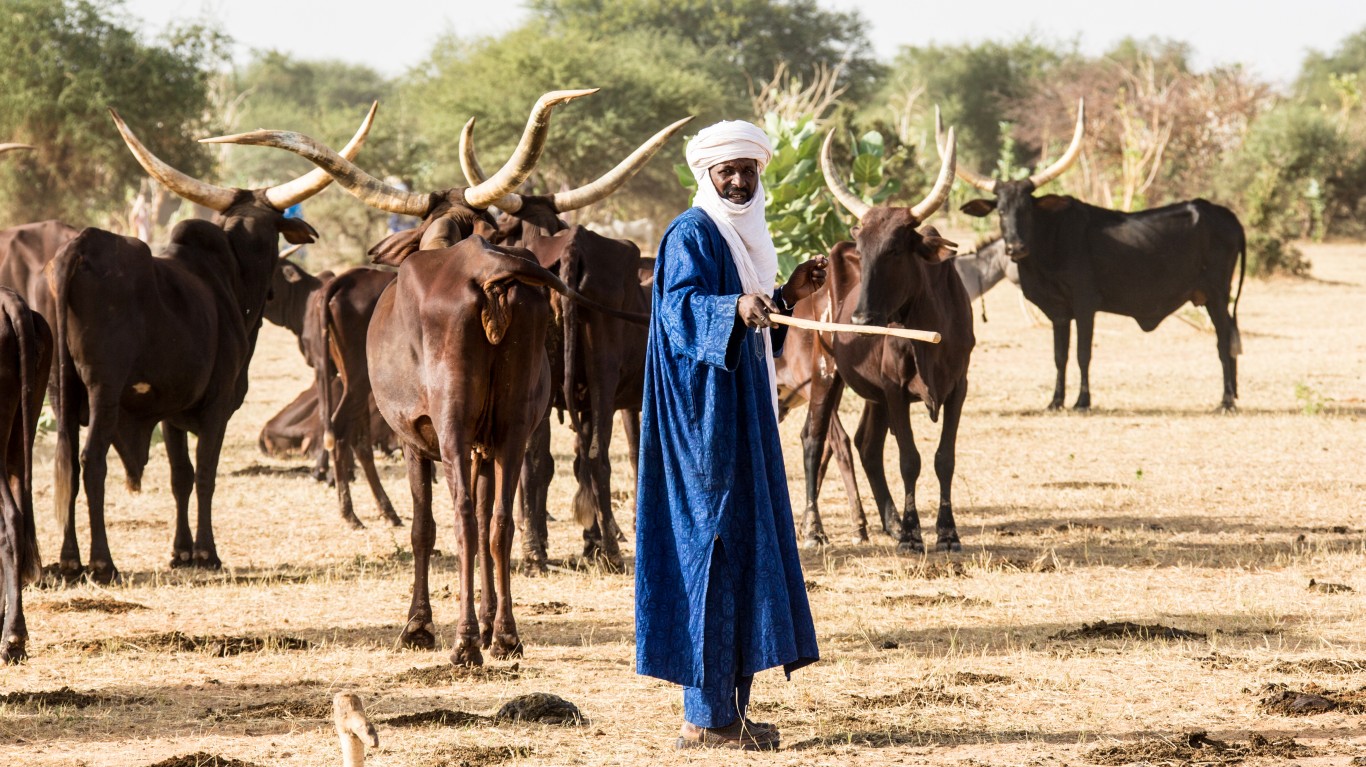
7. Niger
> Animal Protection Index Grade: F
Niger got a C grade for protecting animals used in farming. Legislation forbids the mistreatment of animals and puts limits on the suffering of animals at slaughter. Though there are laws protecting domestic animals in captivity, it appears that those protections do not extend to non-domestic animals. Niger law does not specifically protect the welfare of wild animals.
Among the at-risk animals in Niger are the dama gazelle, spotted-necked otter, African elephant, and the lion. All of these animals have been negatively impacted by threats to their habitat because of increasing human population, development, and poaching.
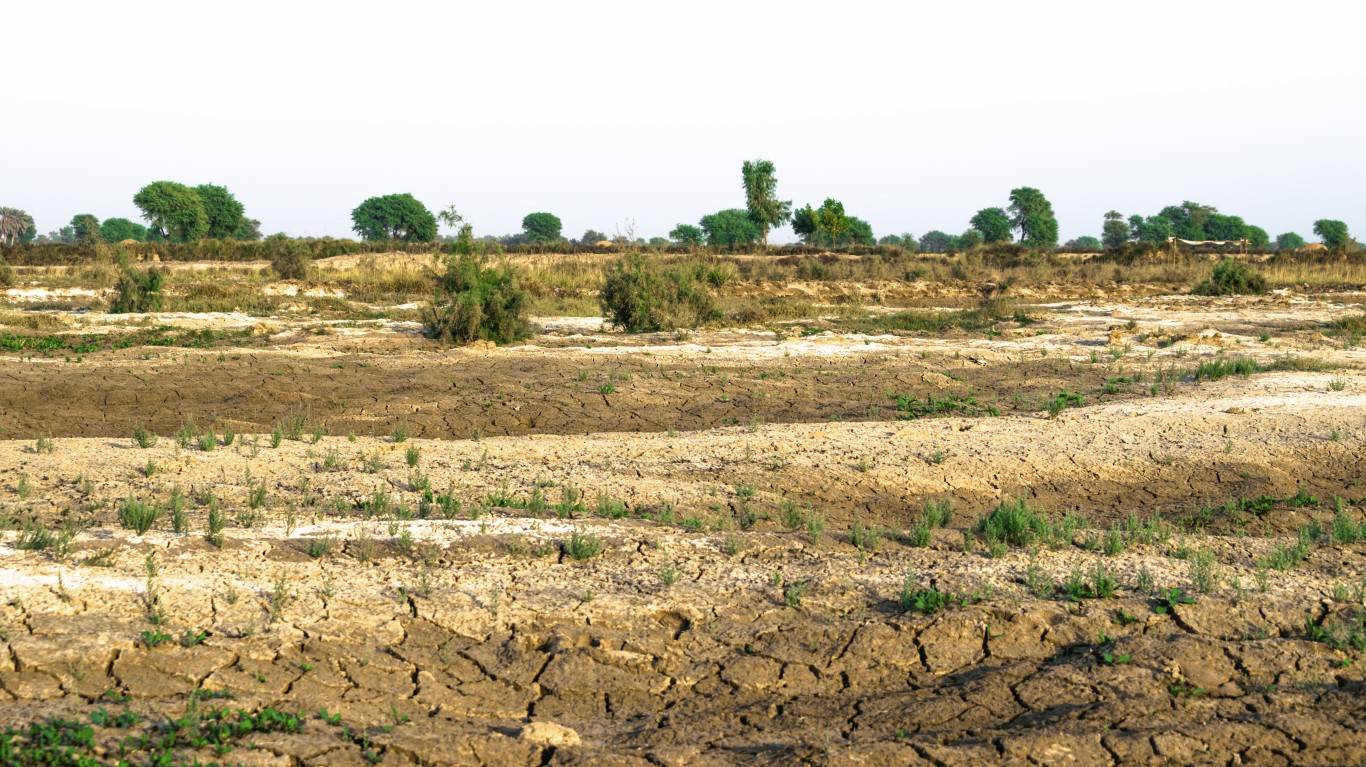
6. Pakistan
> Animal Protection Index Grade: F
Pakistan received a C grade from API for protecting the welfare of wild animals, based on a law that protects wild animals that have been captured. However, that protection does not extend to animals in the wild. Laws protecting animals in captivity vary by province. There is no evidence of government efforts to document animal welfare.
Pollution and degradation of natural habitat threaten the existence of the mountain weasel, and the Suleman markhor, or wild goat, and the national mammal of Pakistan.
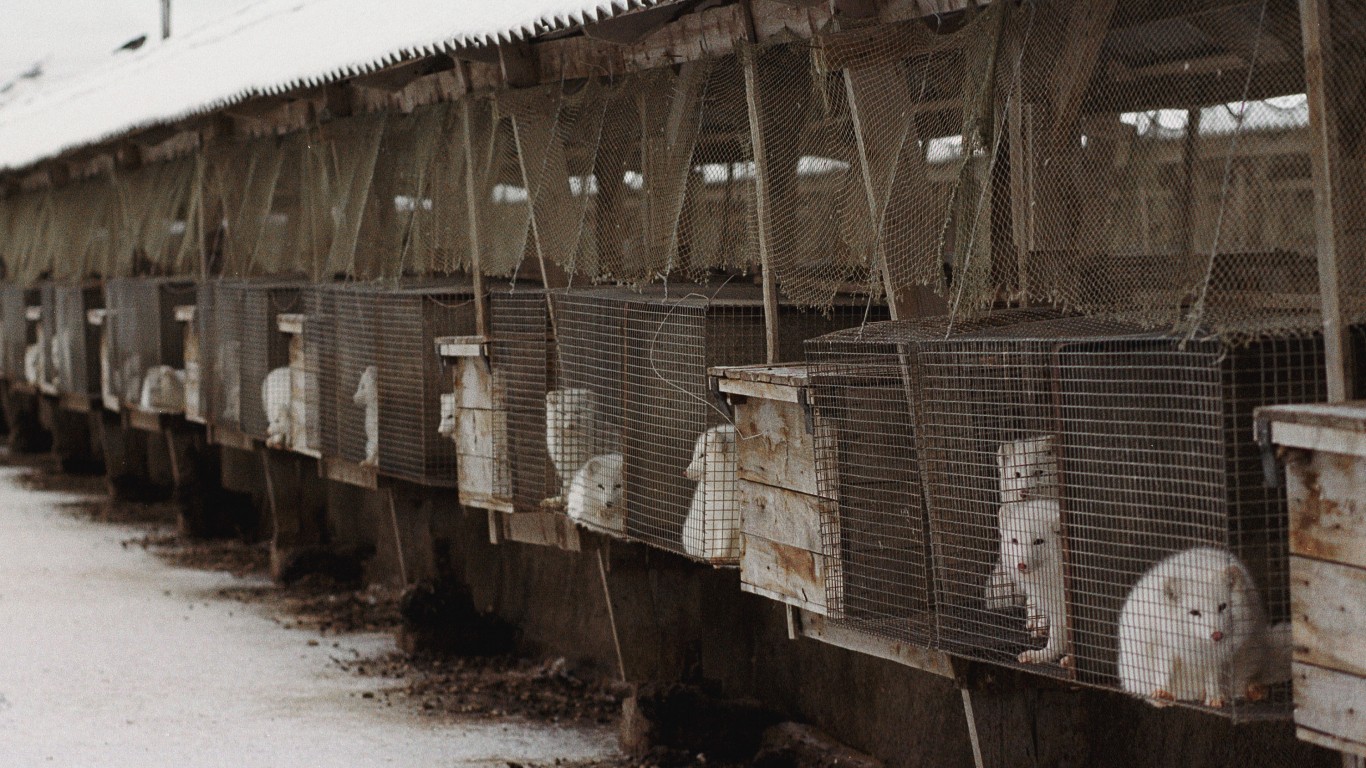
5. Russia
> Animal Protection Index Grade: F
Russia scores no higher than D in any of the 15 categories assessed by the API. There is no acknowledgment of animal sentience in Russia, where animals are regarded as property. No government entity is responsible for the welfare of animals\, and the government has not pledged to support the Universal Declaration on Animal Welfare. Laws against animal suffering exist but are only partially applied. Russia is one of the major producers of farmed fur in the world, but there is apparently no legislation protecting animals farmed for fur.
The Russian desman, a small semi-aquatic mammal, is listed as endangered by the IUCN.
[in-text-ad-2]
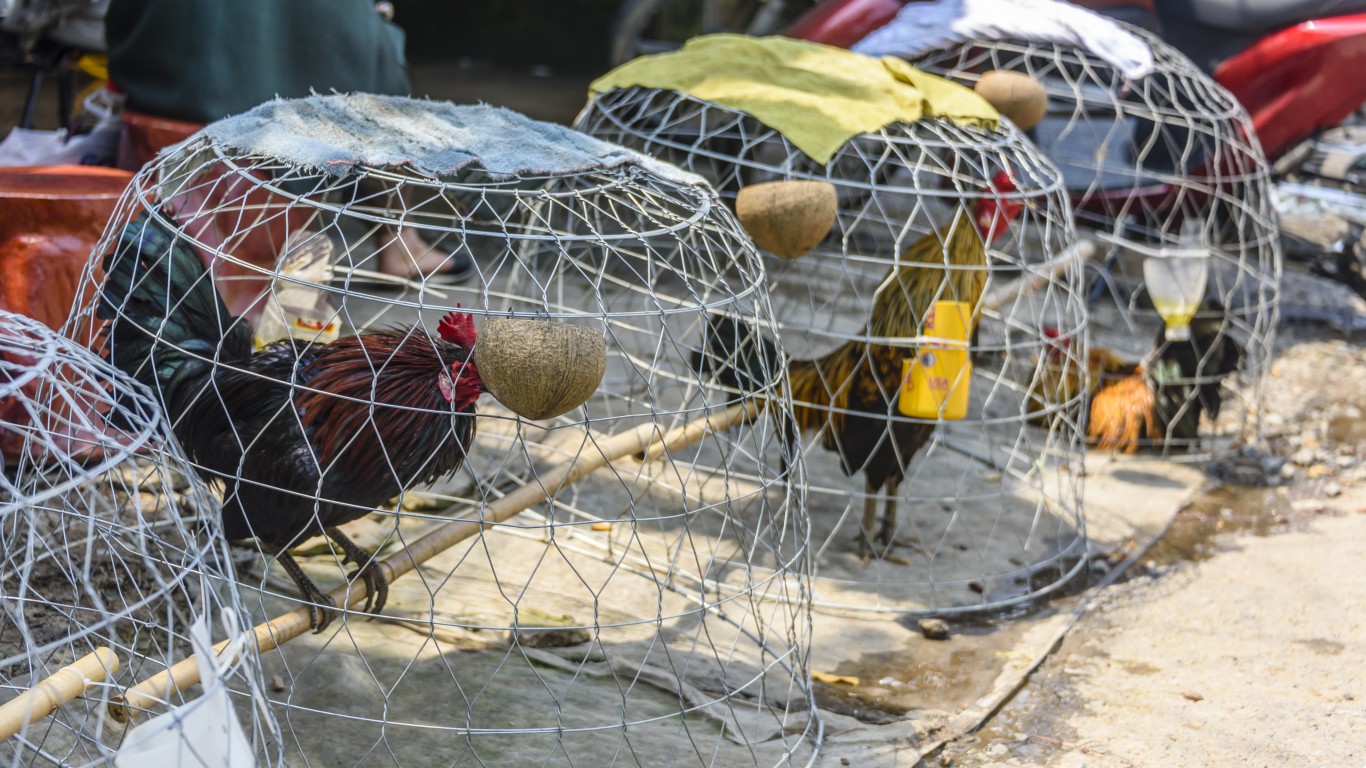
4. Vietnam
> Animal Protection Index Grade: F
Vietnam is in the early stages of crafting legislation to protect animals used in farming. The South Asian nation has legislation that shields some wild animal species, though according to the API, the policy emphasizes conservation rather than focusing on animal welfare. At present, there are no laws in Vietnam against causing animal suffering.
In 2018, Vietnam raised penalties against trafficking in products from rhinos, elephants, tigers, bears, and other animals. This past June, poachers received prison sentences in Vietnam for killing endangered Indochinese gray langurs
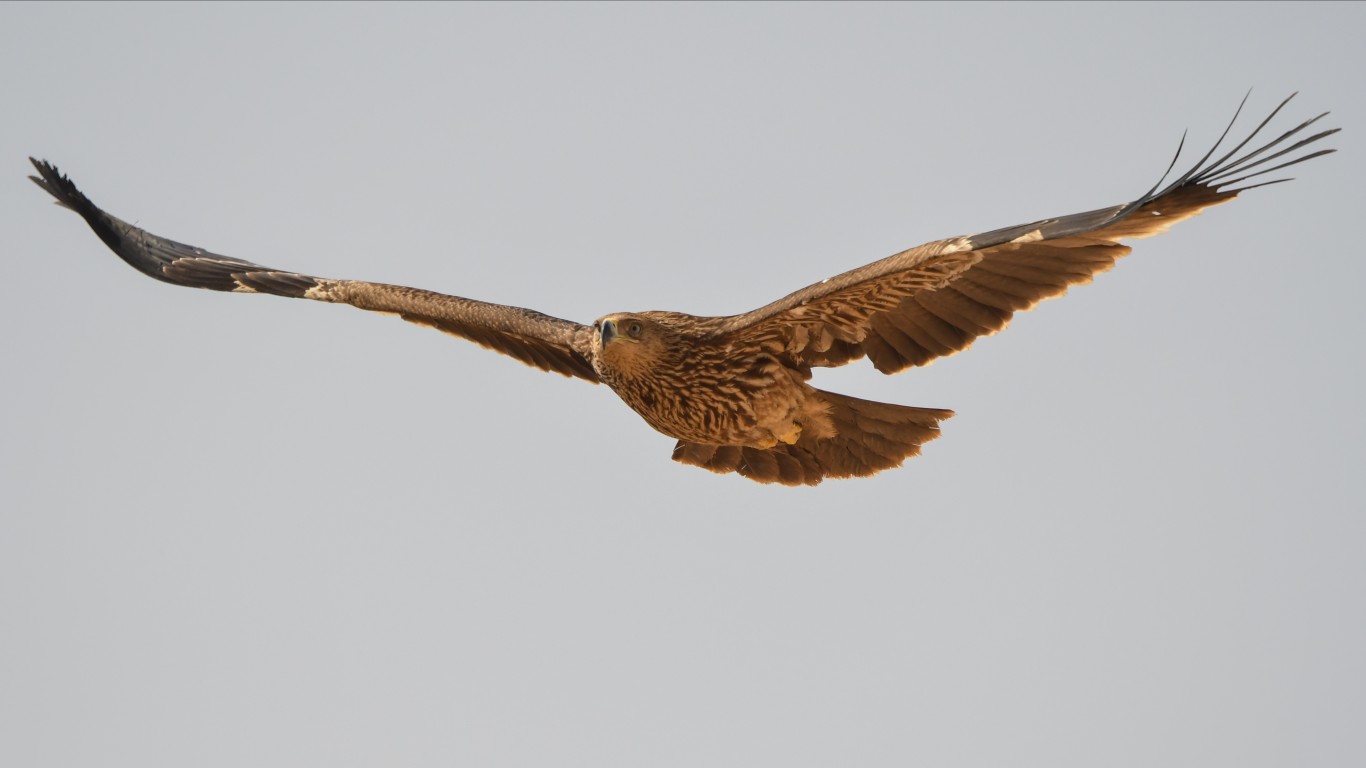
3. Azerbaijan
> Animal Protection Index Grade: G
The Central Asian nation has legislation protecting wild animals, and it received its lone grade of D in that category — its highest grade. Azerbaijan does not consider the welfare of individual animals, according to the API. The government has yet to consider the scientific knowledge regarding animal sentience, even though Azerbaijan is a member of the World Organisation for Animal Health, whose principles on animal welfare are premised on the idea that animals are sentient creatures.
The goitered gazelle, Caucasian leopard, imperial eagle, brown bear, and grey wolf are endangered animals in Azerbaijan. The International Dialogue for Environmental Organization has undertaken a conservation effort to preserve these animals.
[in-text-ad]
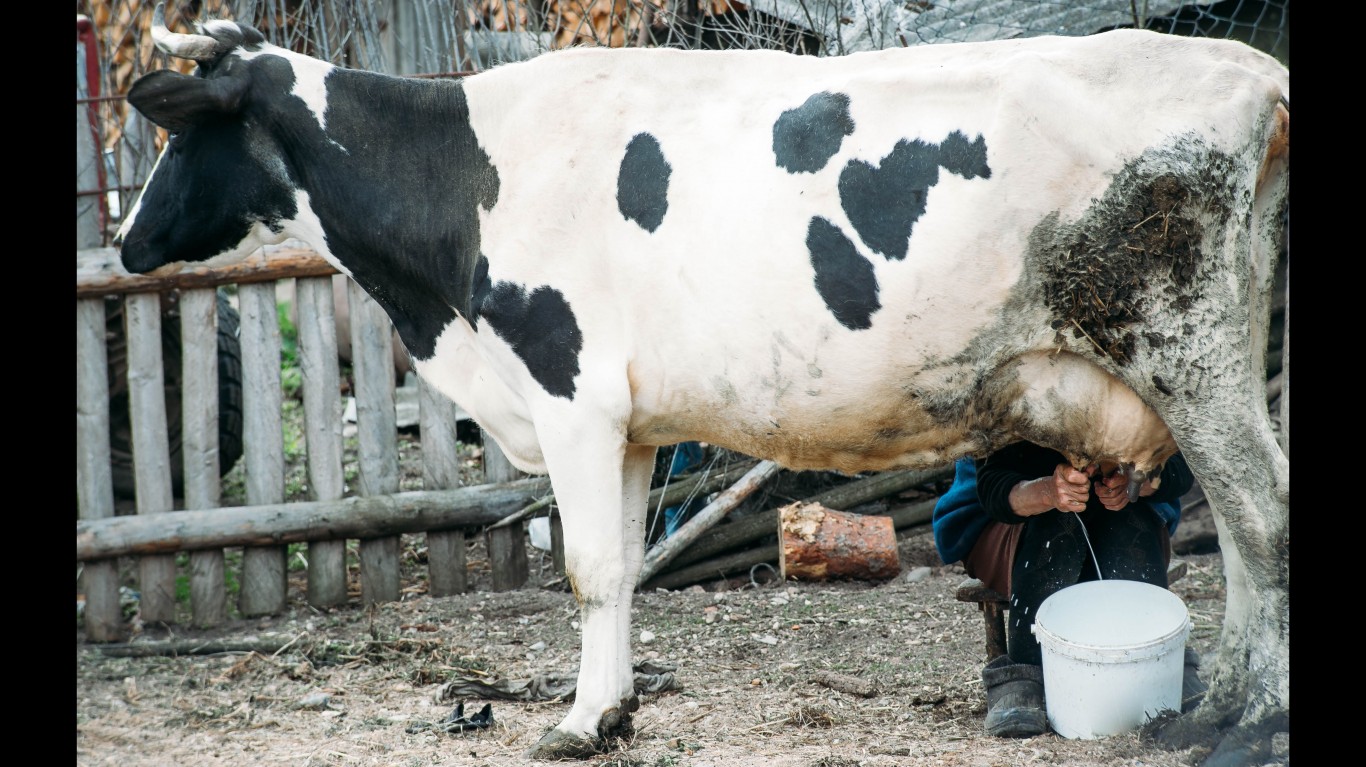
2. Belarus
> Animal Protection Index Grade: G
The nation formed after the dissolution of the Soviet Union has laws pertaining to wild animals that stress conservation and not animal welfare. The government does not formally recognize animal sentience, and Belarus received 12 of the lowest grades from the API, including for laws against causing animal suffering and protecting animals in captivity, companion animals, animals used for draft and recreation, and animals used in scientific research.
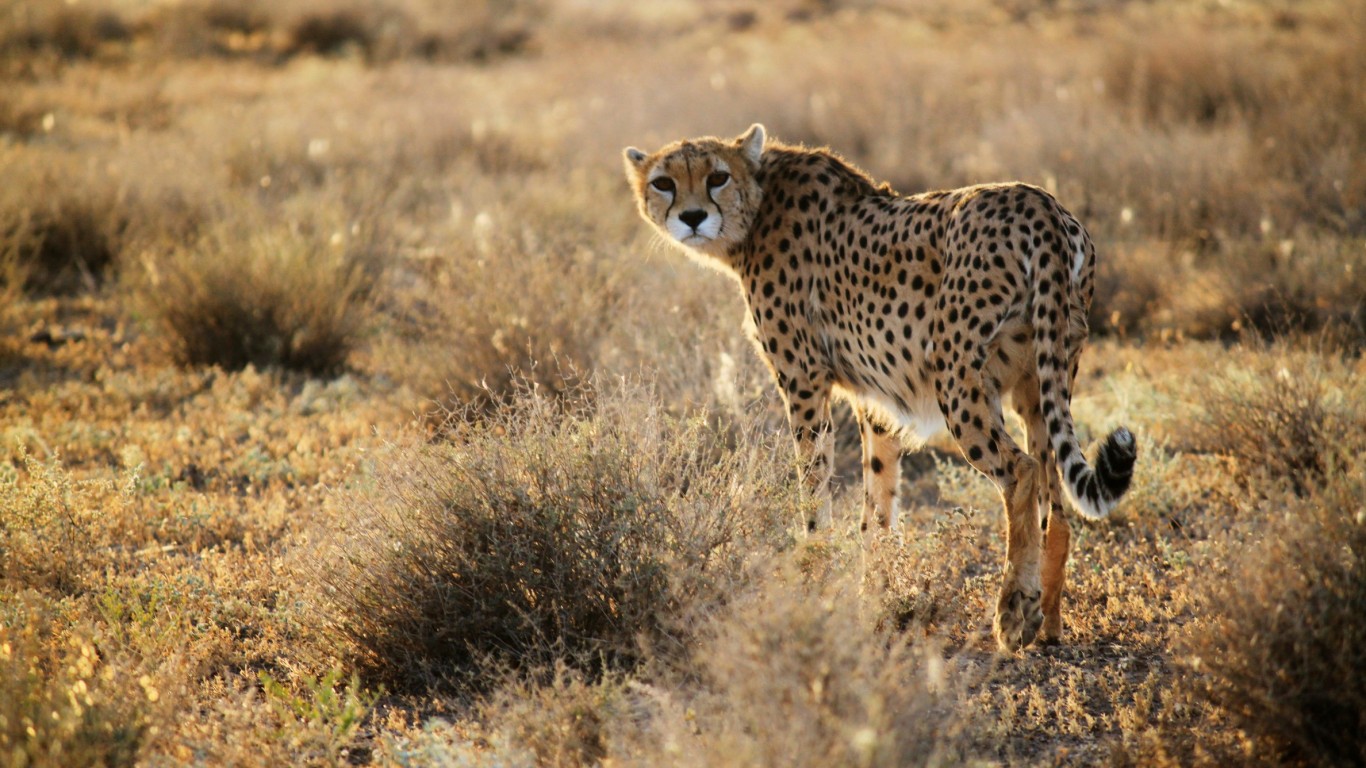
1. Iran
> Animal Protection Index Grade: G
Iran has had laws supporting the protection of natural resources that include wildlife since 1925. Legislation is focused on conservation and regulating hunting, and not on animal welfare. Iran received 12 G grades, the lowest issued by the API, including low marks for laws against causing animal suffering and protecting animals in captivity, companion animals, animals used for draft and recreation, and animals used in scientific research.
Iran has been trying to conserve its cheetah population and reported progress in this initiative in a 2010 report to the Convention on Biological Diversity. The Asiatic cheetah is an endangered species in Iran.
Methodology
Many of the nations on this list are recovering from the effects of prolonged war and civil unrest and lack stable governments that can enforce legislation. “There is indeed a link between countries with poor socio-economic conditions and/or unstable legal systems and poor performance,” continued Boissat.
Animals in some of these countries suffer from so-called animal tourism and are exploited for the enjoyment of tourists from richer countries, who are enabling an industry that cages and shackles animals who live in inhumane conditions.
“No country has perfect legislations for animals,” Boissat said. “Animal cruelty is still justified on the grounds of tradition in many countries, such as for religious slaughter where animals are not stunned prior to being slaughtered, or when animal fights are allowed in the law because of cultural exemptions (this is the case in France, Spain and Brazil, among others).”
Boissat added that industrial farming in wealthier countries causes the most animal suffering because of the number of animals farmed for food and the confined conditions in which they are kept.
This first publication of the Animal Protection Index (API) rates 50 countries on how they treat animals. The API selected these nations using statistics published by the Food and Agriculture Organisation of the United Nations in its Statistical Yearbook for World and Agriculture 2012 from the countries that are the largest producers of beef, poultry, pork, sheep and goat, milk, and eggs. Each country’s assessment was broken down into 15 discrete indicators grouped into five categories: Recognizing animal protection; governance structures and systems; animal welfare standards; providing humane education; and promoting communication and awareness.
We also reviewed data from the International Union for Conservation of Nature to find at-risk animals in a particular nation.
The thought of burdening your family with a financial disaster is most Americans’ nightmare. However, recent studies show that over 100 million Americans still don’t have proper life insurance in the event they pass away.
Life insurance can bring peace of mind – ensuring your loved ones are safeguarded against unforeseen expenses and debts. With premiums often lower than expected and a variety of plans tailored to different life stages and health conditions, securing a policy is more accessible than ever.
A quick, no-obligation quote can provide valuable insight into what’s available and what might best suit your family’s needs. Life insurance is a simple step you can take today to help secure peace of mind for your loved ones tomorrow.
Click here to learn how to get a quote in just a few minutes.
Thank you for reading! Have some feedback for us?
Contact the 24/7 Wall St. editorial team.